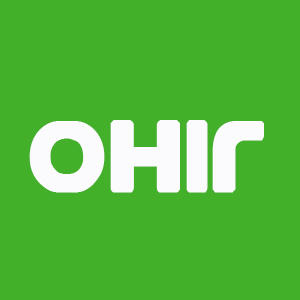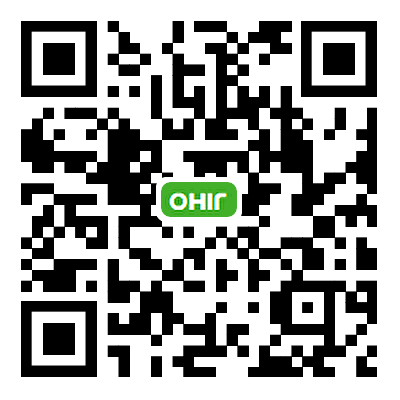The importance of free education for public health and for social transformation
There was a little girl, born in March 1968, who lived in a simple wattle and daub house in a poor neighborhood in the city of Maceió, capital of Alagoas State, in the northeast of Brazil. The house was surrounded by fruit trees - almond, avocado, and jambul fruit. Her father, a typical semi-literate Northeast Brazilian, lived with his second dysfunctional family (the first family already with five children), with no defined profession, did odd jobs on his relatives’ land planting sugarcane, a typical monoculture in the region. She was the 17th of 18 natural childbirths of a brave woman, also semi-literate; 50% of her siblings died as infants, eight before they were one year old, from measles and diarrhea, and one from leukemia at the age of four.
The girl survived these first years, along with five brothers and three sisters. In the midst of the shortage, the older ones, teenagers and youngsters, with no opportunity to study, started working irregular jobs as drivers, bus ticket collectors, and market clerks, which is common in many poor families in Northeast Brazil. The mother was always present, the father not always. He disappeared from time to time, and the older children went to fight for the family’s subsistence.
The girl grew up in silence, almost unnoticed by the others. At the age of five years, she survived a hospitalization within the state-run Unique Health System due to intestinal obstruction by the roundworm Ascaris lumbricoides, treated with piperazine and mineral oil, and consequent elimination of worms for two consecutive days - an unforgettable memory of her childhood. She also survived her public school years, the bullying as a stutterer (a hereditary family trait), and being highly parasitized by head lice. Pediculosis capitis followed her into early adolescence. She suffered from cutaneous larva migrans, tungiasis, scabies, measles, pertussis, and chickenpox, besides being serologically positive for Schistosoma mansoni and Toxoplasma gondii.
The little girl, alone, spent her afternoons on top of the avocado tree. Seven years was the difference to her closest sister, so they did not play the same games. She used to play at school and imagined the students on the stones lined up. Sometimes, in the real classroom, still today, she gets emotional remembering those childhood sensations. All of her education was in public school, and the girl went ahead, without fuss, overcoming difficulties with the support of government programs such as half-fare for students on public transport and free regular school meals.
She took a technical course in industrial chemistry with the purpose of a quicker job to contribute to household expenses. However, driven by her old dream of becoming a teacher, she took a full-degree undergraduate course in science at age 19, majoring in biology, at the Federal University of Alagoas, through the general selection procedure. At that time, there were no quota programs for low-income students yet. Her mother was against it at first; she would have preferred her daughter to work in a job, but already tired of her own struggle, she let it go. Thus, inadvertently, the girl continued studying after graduation because, financially, living off a research scholarship was better than teaching in elementary or high school. Thus, she continued dreaming big, landing initially at the University of São Paulo for a specialization course in the School of Public Health, and then at the Federal University of Minas Gerais, where she obtained a master’s degree, finished her PhD, and made several scientific contributions in the area she dedicated herself to: parasitology. After her master’s degree, she was approved in a public selection procedure at the State University of Health Sciences, and after finishing her PhD, she was approved in another public selection at the Federal University of Alagoas, today holding the position of associate professor. During the academic training period, she was encouraged by scholarships provided by official agencies (monitoring, scientific initiation, scientific improvement, master’s, and PhD scholarships).
Today in parasitology classes, her speech is still accompanied by these childhood memories. She manages to see poetry in the presence of lice in children’s heads, through the tightening of affective bonds, and in the loving touch of caring, of welcoming. She ends her lecture jokingly: “more pediculosis and less neurosis!”. She understands perfectly the reasons for her mother’s lack of affection, but knows that she needs to accept this lack, perhaps also forgiving herself for the lack of attention to her children. She goes on unraveling the meaning of life in the understanding of the others and herself.
This little girl is me! I am the first in my family who manage to get a degree. Today, I am an associate professor at the Federal University of Alagoas, training teachers, biologists, doctors, and pharmacists, not only on technical knowledge but mainly on the human knowledge that I interpret in my own life story. Besides my own effort, I counted on the “privilege” of having light skin - despite being poor, I understand very well that indigenous and afro-descendant populations in Brazil have greater difficulties, which explains the historical social debt with these populations. Four of my remaining brothers are semi-literate. Four finished high school education, and two, after 50 years of age, finally graduated. In reference to the sacrifice of my brothers (three already deceased, being one of the more than 500,000 Brazilians killed in the COVID-19 pandemic, by the negligence of the governmental authorities with public health, delayed availability of vaccines), my commitment to the defense of public and free education only increases. I am living proof that through free education, realities are changed, and social inequalities are reduced. Elementary school, technical high school, and undergraduate and graduate school are backdrop for the explosion of the feeling of gratitude. My memories of the events, the masters and mentors, bring back sensations of yesteryear - the same breeze, the same aroma, the same freshness, the same sunrises and sunsets. Even the flavors always return from a time that has consolidated its current version.
Parasitology goes beyond the boundaries of science, of a simple instrument of knowledge, and presents itself as a transforming gear of life, and of so many reunions with the other lives in my life. Learning and teaching at the same time is attention to the language of the look, the overflow of gratitude that emerges from the heart. It is an involuntary act of love, in the enchanted instant of a two-way donation, without fuss, in silence.
Government policies for public schools are extremely important to promote equal opportunities, such as the exemption of public transportation fares, free school meals, and quota policies for low-income, black, and indigenous students. My story comes to show how unfair the meritocracy policy is.
Through the study of the beings that parasitize other beings, it is necessary to understand them in the natural synchronicity of survival and perpetuation of their species. The “parasitic humans”, on the other hand, suck strength, tranquility and peace, only legislate for their own cause, and, in the agony of pettiness, live by dividing. They know nothing of their humanity; they live immersed in the hell of having, to the detriment of being. They are humans who are dedicated to exploiting and making the lives of other humans hell. It has never been easier to identify them in these times of the COVID-19 pandemic, when scientific denialism emerges from the sewers of ignorance, determining the increase in the rates of all kinds of inequality, and the destruction not only of lives but also of dreams and hopes. As with the real story of the girl with no prospects who transformed her social reality, so is free education the path that will lead humanity to freedom, justice, equality, and peace.
DECLARATIONS
Authors’ contributionsThe author contributed solely to the article.
Availability of data and materialsNot applicable.
Financial support and sponsorshipNone.
Conflicts of interestAll authors declare that they are bound by confidentiality agreements that prevent them from disclosing their conflicts of interest in this work.
Ethical approval and consent to participateNot applicable.
Consent for publicationNot applicable.
Copyright© The Author(s) 2022.
Cite This Article
How to Cite
Download Citation
Export Citation File:
Type of Import
Tips on Downloading Citation
Citation Manager File Format
Type of Import
Direct Import: When the Direct Import option is selected (the default state), a dialogue box will give you the option to Save or Open the downloaded citation data. Choosing Open will either launch your citation manager or give you a choice of applications with which to use the metadata. The Save option saves the file locally for later use.
Indirect Import: When the Indirect Import option is selected, the metadata is displayed and may be copied and pasted as needed.
About This Article
Copyright
Data & Comments
Data













Comments
Comments must be written in English. Spam, offensive content, impersonation, and private information will not be permitted. If any comment is reported and identified as inappropriate content by OAE staff, the comment will be removed without notice. If you have any queries or need any help, please contact us at [email protected].